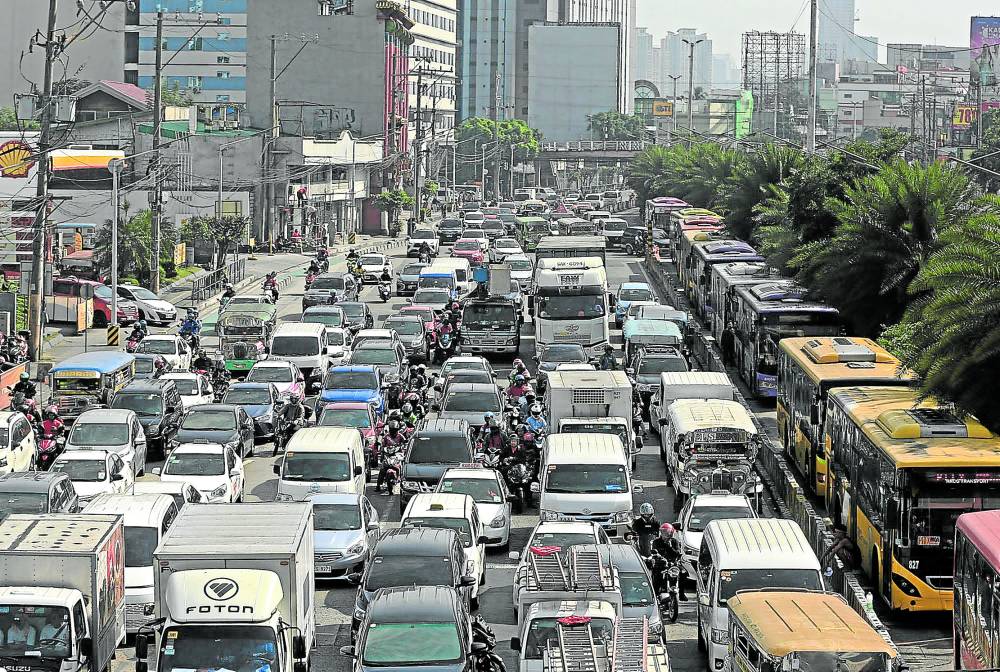The Management Association of the Philippines (MAP) on Friday urged the government to focus on improving the mass transit systems in Metro Manila instead of concentrating on building elevated toll roads to solve the traffic situation.
The influential business group noted that proposals for elevated toll roads have surfaced amid the government’s struggle to solve the traffic congestion in what is considered one of the most densely populated in the country, composed of 16 cities and one municipality. According to an estimate by the World Population Review website, Metro Manila has 14,941,953 residents this year.
“Having elevated toll roads is a quick fix that may offer traffic relief, albeit short term, as they ultimately fail to address the underlying issues of sustainability, equity, and environmental impact,” the MAP said in a statement.
“The Braess Paradox and, similarly, the induced demand phenomenon have proven time and again that adding more road space only attracts more cars that will soon choke the new road space with severe traffic congestion,” it added, referencing and explaining the phenomenon named after German mathematician Dietrich Braess.
The MAP said prioritizing investments in mass transit systems presents a more viable and sustainable solution to Metro Manila’s traffic problem.
Move people, not cars
It added this approach also falls in line with the National Economic and Development Authority’s National Transport Plan and the business group’s holistic transportation plan, under which mass transportation is prioritized to move people instead of cars.
“A well-designed mass transit network, including efficient bus rapid transit systems, light rail transit, and metro systems can significantly move more people and reduce congestion by drastically reducing private car usage while minimizing greenhouse gas emissions and improving air quality,” the MAP said.
“Elevated toll roads come at a significant cost. They will cause massive congestion and disruption at ground level during and after construction that will add to the already heavy cost to society, the economy, and the environment,” added the exclusive business organization.
In a study in 2017, the Japan International Cooperation Agency tracked economic losses of P3.5 billion daily due to the traffic situation in the country’s capital.
This economic loss is projected to balloon to P5.4 billion per day by 2035 without intervention, according to the same developmental organization. INQ
READ: Ride-hailing firms fill mass transport gap
